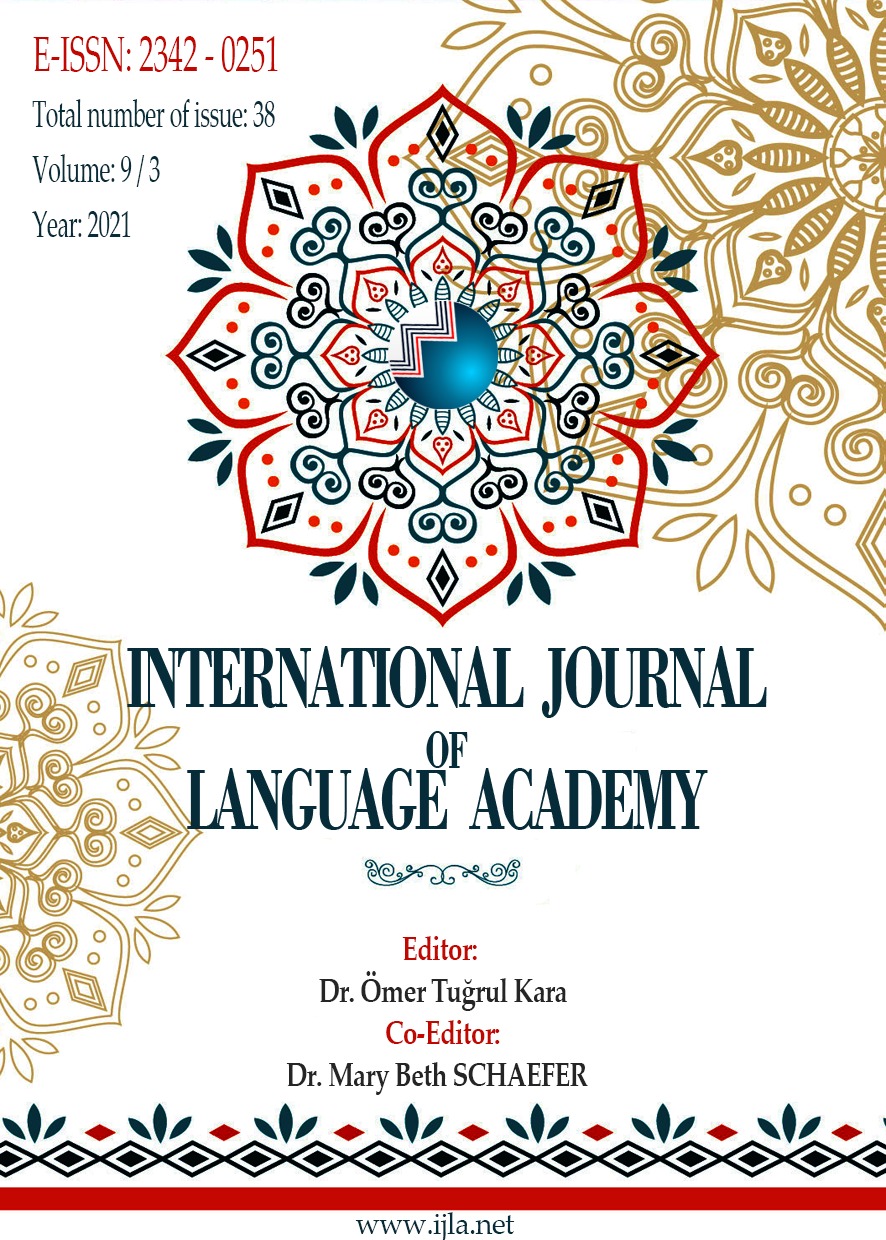IN PURSUIT OF MULTI-ETHNIC FEMINIST SIGNS AND THEIR TRANSLATIONS IN LITERARY FEMINISM: THE CASE OF THE COLOR PURPLE BY ALICE WALKER
Author :
Abstract
Keywords
Abstract
Social hierarchy can simply be defined as a term involving the supremacy of specific parties over “others”. Specifically with the onset of industrialization, social hierarchy came to be exercised as a norm within societies. This type of hierarchy results from the factors like economy, ruling power, race, or gender that cannot be regarded as universal parameters but rather as socially constructed categories. As a result of the socially constructed dualities like “rich vs. poor”, “strong vs. weak”, “educated vs. uneducated”, or “male vs. female” in societies, certain groups of individuals are placed in one end point of the spectrum as “otherized” or “o(u)t[h]ermost”. Multi-ethnic feminism has arisen as a resistance against these types of duality categories enforced by the patriarchy. This study aims at analyzing the multi-ethnic feminist signs in the literary text entitled The Color Purple by Alice Walker (1983). Following the analysis of the text from multi-ethnic feminist perspective, its Turkish translation is evaluated based on Öztürk Kasar’s (2021) “systematics of designification in translation” that consists of nine levels of designification showing degrees of meaning transformation on the original sign(s). A total of 37 contexts are analyzed based on three main themes in multi-ethnic feminism, namely gender-based oppression, race-based oppression, and social norms-based oppression. The analysis results show most of the contexts are translated without any meaning transformation. On the other hand, in cases of meaning transformation in the target text, the feminist signs are found to be rendered through more severe or less violent signs based on the type of meaning transformation. The deliberate use of a non-standard source language as an indicator of the acknowledgment of various potentialities by the author is translated into standard Turkish use in the target text, which can also be thought as wiping-out of the meaning in terms of language use.
Keywords
- Allen, A. (2018). The power of feminist theory: Domination, resistance, solidarity. New York & London: Routledge.
- Baldwin, J. (1997). If Black English isn't a language, then tell me, what is? The Black Scholar, 27(1), 5-6.
- Collins, P. H. (2014). Black feminist thought: Knowledge, consciousness, and the politics of empowerment. 2nd ed. London & New York: Routledge.
- Johnson, A. G. (2004). Patriarchy, the system. Women’s lives: Multicultural perspectives, 3, 25-32.
- Lauret, M. (2011). Alice Walker. 2nd ed. New York: Palgrave Macmillan.
- Lorber, J. (1997). The variety of feminisms and their contribution to gender equality. Oldenburg: Bibliotheks‐ und Informationssystem der Universität Oldenburg.
- Lorber, J. (2010). Gender inequality: Feminist theories and politics. New York: Oxford University Press.
- Öztürk Kasar, S. (2009). Un chef-d’oeuvre très connu: Le chef-d’oeuvre inconnu de Balzac. Commentaires d’une traduction à l’autre laissant des traces. In M. Nowotna and A. Moghani (Eds.), Les traces du traducteur (pp. 87-211). Paris: Publications de l’INALCO.
- Öztürk Kasar, S. (2020). De la désignification en traduction littéraire: Les Gens d’en face de Georges Simenon dans le contexte turc du point de vue de la sémiotique de la traduction. Parallèles, 32(1), 154-175.
- Öztürk Kasar, S. (2021). Çevirmek, anlamı eğip bükme sanatı mıdır? In D. Tuna and M. Kuleli (Eds.), Interdisciplinary debates on discourse, meaning and translation (pp. 19-44). Ankara: Anı Yayıncılık.
- Öztürk Kasar, S. and Tuna, D. (2015). Yaşam, yazın ve yazın çevirisi için gösterge okuma. Frankofoni Fransız Dili ve Edebiyatı İnceleme ve Araştırmaları Ortak Kitabı, 27 (pp. 457-482). Ankara: Bizim Grup Basımevi.
- Öztürk Kasar, S. and Tuna, D. (2017). Shakespeare in three languages: Reading and analyzing sonnet 130 and its translations in light of semiotics. International Journal of Languages' Education and Teaching, 5(1), 170-181.
- Walker, A. (1983). The color purple. London: The Women’s Press.
- Walker, A. (1984a). Renklerden moru … Armağan İlkin (Çev.). İstanbul: İnkılap Yayınevi.
- Walker, A. (1984b). In search of our mothers’ garden: Womanist prose. London: The Women’s Press.
